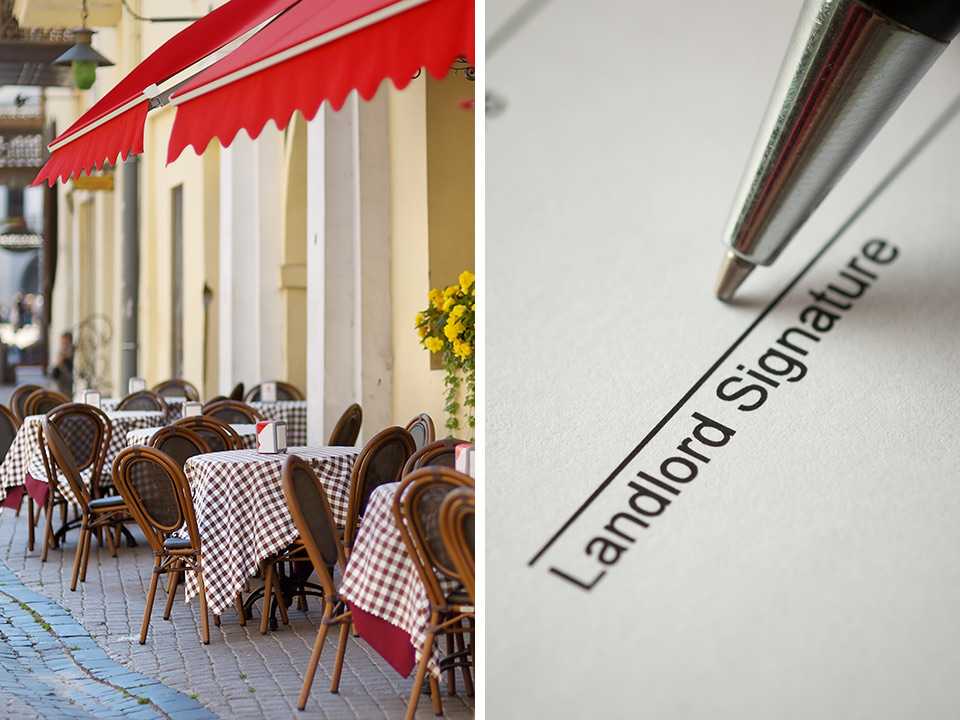Letting commercial properties: what are my responsibilities?
1-minute read

Updated for 2019
When it comes to a commercial property, your responsibilities as a landlord will differ from those associated with renting out a residential property. We’ve put together a guide to help you make sure you know exactly what you need to be doing.
Health and safety responsibilities
Legally, there are a number of health and safety responsibilities you have as the landlord for a commercial property. However, in some cases the tenant will take responsibility for all or part of a health and safety concern – it depends what it says on the lease, so you should check this first.
Fixtures and fittings
Any fixtures and fittings you have installed in the property need to be safe to use. This includes correct installation and, in the case of some electrical equipment, a safety certificate.
If the tenant installs any fixtures and fittings themselves, then it will usually be their responsibility to maintain those. It’s best to clarify exactly what you will take responsibility for in the lease should you need to refer to it later.
Gas and electricity
Gov.uk says that tenants should maintain equipment according to the manufacturer's instructions. This includes ensuring a registered gas safe engineer and an electrical safety engineer inspect the property on a regular basis.
Gas appliances or electrical items supplied by the tenant will be their responsibility.
However, the landlord may be responsible for the safety of installations in communal areas.
Maintenance and repair
The lease should say who's responsible for maintenance and repair. However, the responsibility for repairs often falls to the tenant. The tenant will also usually need to cover the costs to return the building to its original state when ending the tenancy.
Much like a residential property, any fault with the building itself will be the landlord’s responsibility. Should there be a problem with the structural integrity, for example, it will usually fall upon you to fix it.
Asbestos
It’s very important that you include asbestos in any risk assessments you conduct. While it may not be necessary to remove the asbestos, failing to properly manage it can result in a fine of up to £20,000 and two years in prison.
Fire safety
When it comes to things like evacuation procedures, those responsibilities will usually fall with your tenant, but you should always include fire safety in any risk assessment you complete. While it may be down to you to supply fire safety equipment, this is something that needs to be defined in the lease.
The Code for Leasing Business Premises in England and Wales
In 2007, the Code for Leasing Business Premises in England and Wales was published. It aims to “create a document which is clear, concise and authoritative” when it comes to the responsibilities of commercial landlords and tenants.
While commercial landlords are not legally obliged to obey the Code, it was authorised by such regulatory bodies as the British Council for Offices, the British Retail Consortium, and the Confederation of British Industry, as well as groups representing insurers and surveyors.
Whether or not you decide to comply with the code, it is worth knowing its contents so you can be aware what tenants may expect of you and what your competitors might be offering.
The code covers:
- lease negotiations
- rent deposits and guarantees
- length of term, break clauses and renewal rights
- rent review
- assignment and subletting
- service charges
- repairs
- alterations and changes of use
- insurance
- ongoing management
You can read the full code here
Looking for commercial landlord cover?
Over 100,000 UK landlord policies, a 9/10 customer rating and claims handled by an award-winning team. Looking to switch or start a new policy? Run a quick commercial landlord insurance quote to protect your property today.
Start your quote
Written by
Anna Delves
We create this content for general information purposes and it should not be taken as advice. Always take professional advice. Read our full disclaimer
Keep up to date with Simply Business. Subscribe to our monthly newsletter and follow us on social media.
Subscribe to our newsletterInsurance
Public liability insuranceBusiness insuranceProfessional indemnity insuranceEmployers’ liability insuranceLandlord insuranceTradesman insuranceSelf-employed insuranceRestaurant insuranceVan insuranceInsurersAbout
About usOur teamAwardsPress releasesPartners & affiliatesOur charitable workModern Slavery ActSection 172 statementSocial mediaSite mapAddress
6th Floor99 Gresham StreetLondonEC2V 7NG
Northampton 900900 Pavilion DriveNorthamptonNN4 7RG
© Copyright 2024 Simply Business. All Rights Reserved. Simply Business is a trading name of Xbridge Limited which is authorised and regulated by the Financial Conduct Authority (Financial Services Registration No: 313348). Xbridge Limited (No: 3967717) has its registered office at 6th Floor, 99 Gresham Street, London, EC2V 7NG.